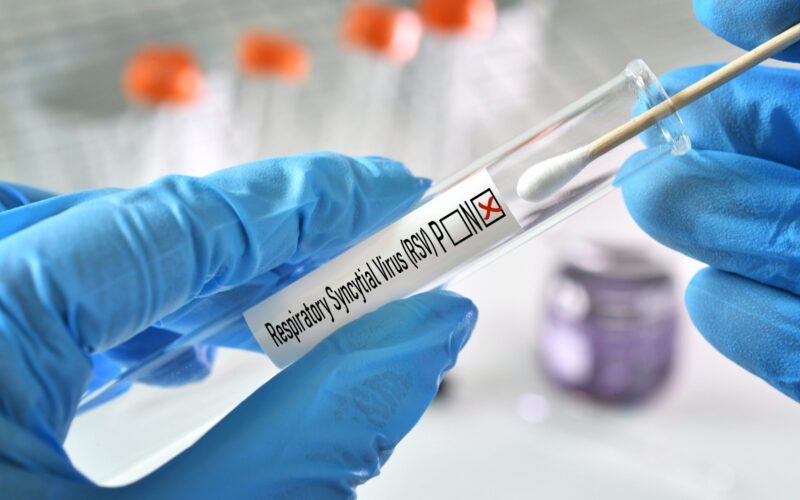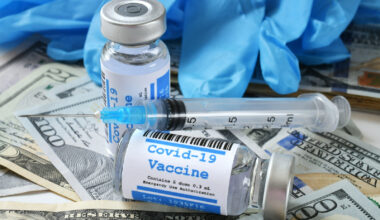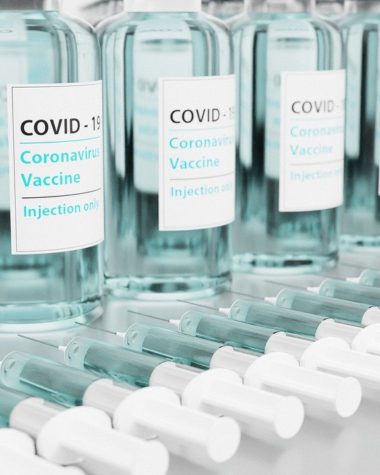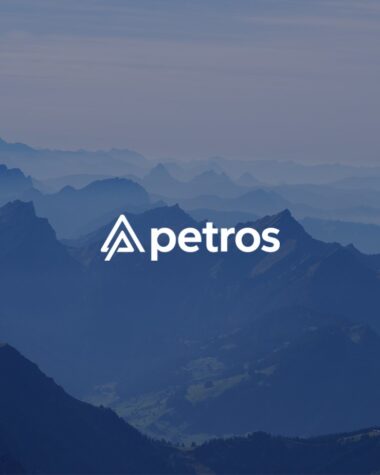Moderna’s RSV vaccine, mRNA-1345, has experienced a delay in FDA approval, initially expected by May 12 but now postponed to the end of the month due to “administrative constraints.” Despite this setback, Moderna remains confident, as there have been no concerns raised by the FDA about the vaccine’s safety, efficacy, or quality.
This delay affects Moderna’s strategy to expand its portfolio beyond the COVID-19 vaccine to include treatments for RSV, a prevalent respiratory virus. The market has reacted with a slight decline in Moderna’s stock prices. Stakeholders and investors are now assessing how this delay might impact Moderna’s expansion efforts and its position in the RSV vaccine market.
The FDA has delayed its decision on Moderna’s RSV vaccine, mRNA-1345, citing administrative reasons, with the new deadline set for the end of this month. Despite the delay, the vaccine remains on track for a review by CDC advisers in late June. Moderna’s shares dropped 3% following the news. The vaccine targets RSV in adults over 60, a virus that can be serious in older adults. Analysts predict significant revenue from this vaccine, comparing its effectiveness and market potential against competitors like Pfizer and GSK.
The FDA’s delay in approving Moderna’s RSV vaccine, mRNA-1345, is attributed to “administrative constraints,” and the decision is now expected by the end of May 2024. The vaccine, intended for adults aged 60 years or older, has shown promising results in preventing RSV-associated lower respiratory tract disease, with an efficacy of 83.7% against the disease when defined by two or more symptoms.
Moderna’s RSV vaccine utilizes the same lipid nanoparticles as its COVID-19 vaccines and encodes for a stabilized prefusion F glycoprotein, which is essential for viral entry into host cells. This vaccine is part of Moderna’s broader initiative to address respiratory diseases, which also includes candidates for influenza and COVID-19.
Globally, Moderna has pursued regulatory submissions in several regions, including the EU, Switzerland, Australia, and the US, reflecting its commitment to expanding the availability of its RSV vaccine.
The ongoing studies and planned regulatory submissions illustrate Moderna’s strategic efforts to diversify its portfolio beyond its initial COVID-19 vaccine, aiming to address significant public health needs, especially in vulnerable populations like older adults.
Key Features of mRNA-1345
- Technology: mRNA-1345 utilizes Moderna’s messenger RNA (mRNA) technology, similar to that used in its COVID-19 vaccine. The vaccine encodes for a stabilized form of the prefusion F glycoprotein of the RSV virus. This glycoprotein is crucial for the virus’s ability to enter host cells and is a primary target for neutralizing antibodies.
- Efficacy: In its Phase 3 pivotal efficacy trial, dubbed ConquerRSV, mRNA-1345 demonstrated an efficacy rate of 83.7% against RSV-associated lower respiratory tract disease characterized by two or more symptoms. This high efficacy showcases its potential effectiveness in preventing serious illness due to RSV in older adults.
- Safety and Tolerability: During clinical trials, mRNA-1345 was generally well tolerated with the most commonly reported side effects being mild to moderate, including injection site pain, fatigue, headache, myalgia, and arthralgia. Serious adverse reactions were infrequent.
- Regulatory Status: mRNA-1345 received Breakthrough Therapy Designation from the FDA, which is intended to expedite the development and review process for drugs and vaccines that are meant to treat a serious condition and demonstrate substantial improvement over available therapy.
- Global Impact and Submission: Moderna has submitted marketing authorization applications for mRNA-1345 in several regions, including the European Union, Switzerland, and Australia, reflecting its potential global impact on public health. The FDA has postponed its approval decision to the end of May 2024 due to administrative constraints.
The ongoing development and anticipated approval of mRNA-1345 are crucial for addressing the substantial burden of disease caused by RSV, especially among older adults. The approval and widespread use of such a vaccine could significantly reduce hospitalizations and deaths associated with RSV infections annually.
Respiratory Syncytial Virus (RSV) is a significant cause of respiratory infections across all age groups globally, but it poses the highest risks to infants, young children, and older adults. In young children, RSV is the leading cause of bronchiolitis and pneumonia, and in adults aged 65 and over, it is increasingly recognized as a critical health threat similar to influenza, often leading to hospitalizations and increased mortality rates, especially among the frail elderly and those with underlying health conditions.
Statistically, RSV leads to substantial global health impacts annually. In high-income countries, it’s estimated that RSV affects millions of older adults, resulting in hundreds of thousands of hospitalizations and tens of thousands of deaths each year. For instance, RSV is estimated to cause 10.9 million infections annually in older adults in these regions, leading to 0.8 million hospitalizations and as many as 74,000 deaths (BioMed Central).
The burden of RSV extends to healthcare settings as well, where it is a common cause of nosocomial (hospital-acquired) infections, impacting both the very young and the immunocompromised. The virus shows significant persistence in communities, typically peaking during the winter months, but with notable variations depending on geographic and environmental factors. Efforts to manage and prevent RSV include heightened surveillance, especially as standard precautions like masking and handwashing become less stringent post-COVID-19 pandemic, exposing at-risk populations to higher risks of RSV infection (Cleveland Clinic) (World Health Organization (WHO)).
For more detailed statistics and information about the burden of RSV, you can visit the CDC’s RSV National Trends page and the WHO’s detailed overview on RSV.
Market Size for Moderna’s RSV Vaccine Potential

The market for vaccines and treatments targeting Respiratory Syncytial Virus (RSV) is experiencing significant growth both in the U.S. and globally, driven by the high prevalence and substantial impact of the virus, particularly among infants and older adults.
In the United States, the market for RSV vaccines is projected to expand notably. By 2032, it is expected to reach a market value of approximately $1.7 billion, reflecting a substantial compound annual growth rate (CAGR) (Persistence Market Research). This growth is attributed to the increasing demand for effective RSV prophylactics, especially given the high rate of hospitalizations and severe health complications associated with the virus.
Globally, the RSV vaccine and antibody market is also poised for rapid expansion. Estimated at about $2.56 billion in 2024, the market is expected to grow significantly to reach approximately $9.53 billion by 2028. This expansion reflects a compound annual growth rate of nearly 31.65% during the forecast period from 2024 to 2030 (GlobeNewswire). The growth drivers include the increasing elderly population, rising healthcare expenditures, and the higher incidence of RSV, particularly among children.
Major pharmaceutical companies such as Pfizer, GSK, Johnson & Johnson, and Moderna are actively developing RSV vaccines and antibodies. These firms are leveraging advanced technologies and strategic partnerships to expedite the development and commercialization of these products. The competitive landscape is intense, with companies vying for market share in a sector where the need for effective RSV management solutions is increasingly urgent (Research & Markets) (Fierce Pharma).
The ongoing research and development efforts, coupled with the rising demand for RSV vaccines and treatments, underscore the critical importance of this market in the broader pharmaceutical and healthcare industries.








